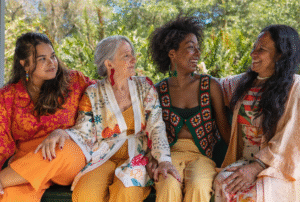Feminism today is more than a call for equal rights between women and men. It has grown to recognize the many different ways that people experience oppression and exclusion. One of the most important ideas in this evolution is intersectionality.
Coined by legal scholar Kimberlé Crenshaw, intersectionality describes how different forms of discrimination—like racism, sexism, ableism, classism, and more—overlap and interact. It reminds us that no one experiences just one identity or form of oppression at a time. A woman’s experience is shaped not only by her gender but also by her race, economic background, sexuality, disability, and more.
For feminism to be truly inclusive and liberating, it must take these layered experiences seriously. A white, middle-class woman does not face the same barriers as a migrant woman working in low-paid care work, or a First Nations woman navigating racism and dispossession. If feminism only centers the voices of the most privileged, it risks becoming part of the problem it aims to solve.
This insight is just as important in Christian feminism. Within the Church, women have long challenged the structures that silence or exclude them. But Christian feminism must also ask: Whose voices are we still not hearing?
The experience of a Black woman in a conservative church may be vastly different from that of a white woman in a progressive Christian community. A queer woman may not feel safe being honest about her identity. A woman with a disability might find her needs ignored in theological spaces. Intersectionality calls Christian feminists to widen the circle and listen deeply.
At its heart, Christian feminism rooted in intersectionality echoes the Gospel message: that every person bears the image of God and deserves dignity, justice, and love. It challenges us to look at who holds power in our communities, and who is still waiting to be fully welcomed.
This approach doesn’t divide the movement—it makes it stronger. It helps build a Church where all are seen, heard, and valued. As the saying goes, “No one is free until we are all free.” That freedom is not something we reach alone—it’s something we create together.
